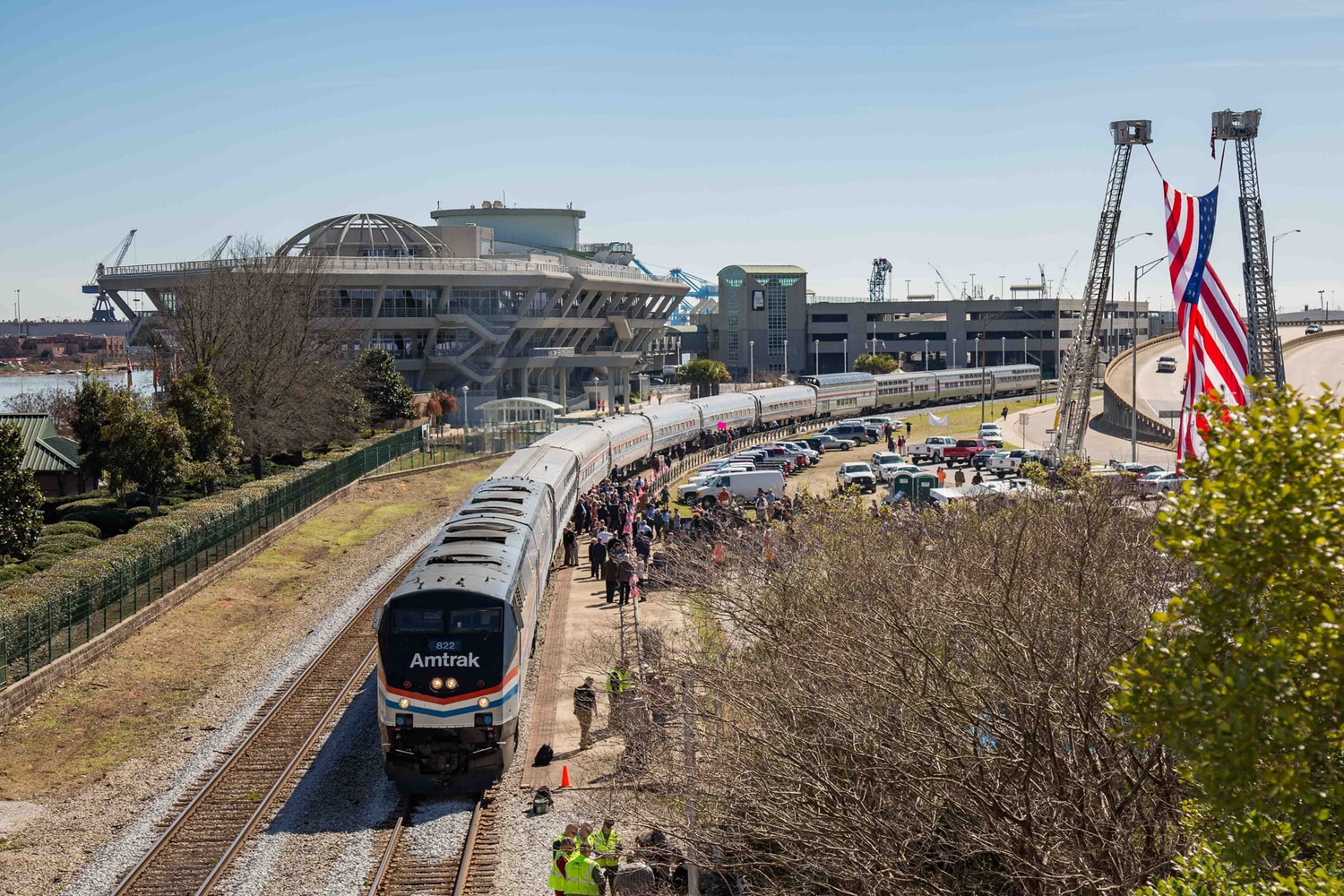WASHINGTON (CN) — With Amtrak still in recovery mode following a pandemic-induced squeeze, the national railway firm’s CEO went under the congressional microscope Tuesday as lawmakers voiced their concerns about the state of U.S. rail infrastructure and what some said how rail security measures compare to other modes of mass transit.
The Covid-19 pandemic brought tremendous financial losses to the federally owned Amtrak. In 2021, it hemorrhaged over $1 billion — a particularly painful metric considering Amtrak had projected that in 2020 it could turn a profit for the first time in years.
Now, things are looking up once again, Amtrak CEO Stephen Gardner testified Tuesday before the House Transportation and Infrastructure Committee. He said losses for the first half of 2023 have dropped to just around $400 million, and ridership has spiked to almost 90% of 2019 levels. Amtrak could be seeing pre-pandemic passenger loads as soon as next year, he projected.
“This is remarkable, and the best post-pandemic performance of any U.S. passenger rail operator,” Gardner said in an opening statement.
The railway CEO considers the 2021 Infrastructure Investment and Jobs Act, which implemented billions of dollars in funding for railway expansion and modernization, a game changer for Amtrak’s finances.
“Amtrak is no longer simply a passenger rail operator,” Gardner said, “but we’re now a major construction company executing a massive capital program. This creates additional operating expenses that didn’t exist before.”
Even with the federal assistance, Gardner resolved that Amtrak would continue to pursue profitability while implementing Congress’ infrastructure aims. “You can be sure we’ll continue to place a balance on pursuing improved financial performance with our other statutory goals,” he added.
Gardner also urged lawmakers to fully fund Amtrak in the 2024 fiscal year. The company in March requested a grant of roughly $3.6 billion to cover its operations.
Despite the rosy outlook from the railway CEO, some lawmakers took the opportunity to press Gardner on several issues — in particular, the security of rail operations and passengers.
Texas Republican Troy Nehls expressed concern about what he said was a lack of security screening required to ride Amtrak trains, as opposed to procedures in place for air travel.
“I can’t get on an airplane with a bottle of water,” the congressman said, “but it appears to me that to get on an Amtrak train, you don’t have to have any ID, your bags don’t have to match the manifest.”
Fellow Texas Republican Brian Babin questioned Gardner on why the national rail service hasn’t invested in some screening technology for its stations. The Amtrak CEO responded that the company uses a multitiered security system, including cooperation with the Transportation Security Administration and the Department of Homeland Security. “Incidents are quite rare on Amtrak,” Gardner added.
Despite that, Gardner noted that the rail service is indeed considering what he called “relatively unintrusive but potentially effective” screening methods, similar to those used at Smithsonian museums or in stadiums.
Turning to infrastructure security, Nehls cited a December report from Amtrak’s Office of the Inspector General, which found that keys for high-security rail facilities have been made publicly available by former employees selling them in online or physical marketplaces. The audit found that Amtrak does not consistently keep track of the keys it distributes to employees.
“I think this is obviously very damaging, in my humble opinion,” said Nehls, referencing reports that a former Amtrak employee had been selling security keys on the internet. “It could become a big problem for all of us.”
Gardner reassured the congressman that Amtrak was revamping its key control process after the inspector general’s report. “I can tell you, for a long time these kind of switch keys have been around in collectors’ hands,” he said. “Those days are over now.”
Lawmakers grilled the Amtrak CEO on railway infrastructure issues as well. Massachusetts Democrat Seth Moulton needled Gardner on his company’s efforts to decrease trip times by raising speed limits past 100 miles an hour in some areas.
“Regular old commuters taking trains in and out of London have been going 125 miles per hour for a few decades now,” Moulton said. “I think we could set our sights a bit higher.”
Gardner told the congressman that some of the major capital projects funded under the 2021 infrastructure bill, such as improvements to bridges and tunnels, could help smooth travel times for passengers.
“Our goal is to get to 160 miles an hour everywhere the railroad permits it today,” the Amtrak CEO said, “and upgrade the infrastructure to support that, both signal and power.”
Subscribe to Closing Arguments
Sign up for new weekly newsletter Closing Arguments to get the latest about ongoing trials, major litigation and hot cases and rulings in courthouses around the U.S. and the world.









